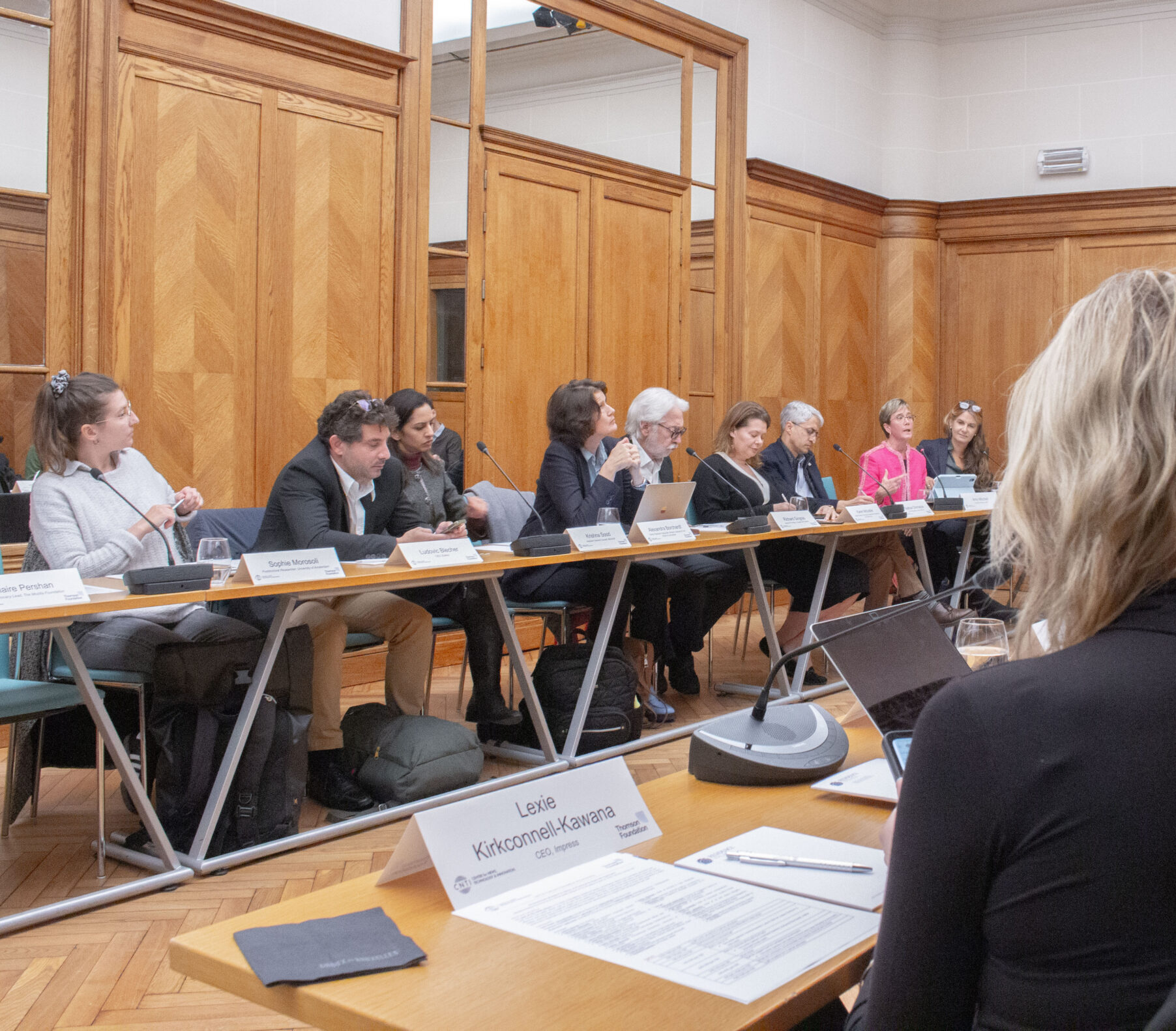Since the fall of the Berlin Wall and the hopeful wave of democratization that followed, donor support for independent media has helped build vibrant, rights-oriented information ecosystems in countries around the world. This wasn’t charity. It was a commitment to free expression, access to information, and public interest journalism as essential building blocks of democracy and human rights.
In my recent PhD research — a culmination of 25 years in the field — I traced how foreign aid, particularly after 1989, supported a model of media development rooted in liberal democratic ideals: supporting civic voices, fighting disinformation, building watchdog institutions, and amplifying marginalized communities. Donors like USAID, Sida, Open Society Foundations, and others invested in the public good of media.
But here’s what I found: this model, while essential, is fragile. The fragility now cuts across geographic regions, levels of development and government regimes.
More than 1,600 journalists have been killed since 1992, and 361 were imprisoned in 2024 alone, per the Committee to Protect Journalists. Reporters Without Borders’ World Press Freedom Index shows a stark deterioration in media freedom across every region. In many contexts, media capture by state or oligarchic interests has deepened, and surveillance and harassment of journalists has become routine.
At the same time, independent newsrooms are collapsing under financial strain; many independent outlets would not survive without donor support. A 2023 study by the Center for International Media Assistance, for example, found that fewer than 20% of donor-supported media outlets had sustainable business models in place. The majority rely on a patchwork of grants, limited advertising, or personal contributions from staff to keep operating.
In short: Donor assistance alone is not enough to sustain journalism around the world. The “Fourth Estate” ideal cannot exist without also having strong business models and sustained political investment.
We are in a transitional period, where the convergence of democratic backsliding, the collapse of past revenue models and digital disruption forces a reevaluation of how media development operates.
What we urgently need now is a new generation of support that combines donor resources with public-private partnerships, innovation in business models and a robust civil society movement that embeds access to information and freedom of expression into the heart of development. These rights must be seen not as optional ideals, but as foundational pillars of both political and economic progress.
Luckily, the sector is not starting from scratch. It has more than three decades of valuable experience to draw upon — work that unfolded in parallel with the rise of mobile technology, the mainstreaming of social media and growing global connectivity.
What we’ve learned from 30 years of media assistance
My research shows that the normative ideals from Four Theories of the Press — which laid out the four foundational models of authoritarian, libertarian, social responsibility and Soviet communist — still guide the field today. The libertarian model, which champions a free marketplace of ideas and minimal government interference, and the social responsibility model, which suggests that media, though free, has an obligation to serve the public good and support democratic functioning, have been central to the design of donor-backed media development programs since the Cold War era. While these frameworks served important roles in promoting press freedom and democratic accountability, they have not kept pace with current challenges.
Donors have become adept at short-term interventions, routing funding through international intermediaries, but they have failed to address systemic issues like media capture, the decline of public interest journalism and the failure to treat media as a public good. Moreover, there are few scalable models or financial frameworks that realistically map what it costs to build a media system — and even fewer that can address the structural dependencies we’ve created.
These are not just market failures — they are governance and policy failures.
Donors now face a critical opening to reassess their media assistance. Long-haul progress, such as regulatory reform, policy innovation and building enabling environments, will take generational commitment. But we can start by recommitting to media as a cornerstone of democratic societies — one that centers local actors, emphasizes rights-based frameworks and treats journalism not as an afterthought, but as an essential public good — as well as by exploring the types of business models and modalities of financing that can effectively support public interest journalism.
Where media development should go next
This is an inflection point. Donors must go beyond traditional models of media development and commit to inclusive, forward-looking strategies. Civil society and local actors must be at the table, helping to shape new business and governance models. A more strategic, data-informed, and systems-level approach is not only possible — it is imperative.
Moving forward, sustainability cannot remain the sole metric of success for media development. Instead, we need to prioritize resilience — a concept that embraces adaptability, uncertainty, and the changing nature of the media landscape. We need to cultivate resilient ecosystems grounded in democratic values and human rights. Long-term strategies, flexible funding and revenue streams, and investment in legal and institutional reform are necessary, alongside support for civil society and journalism that is publicly accountable.
In new and developing democracies, there is a particular need to grapple with the unfinished business of localization. Most funding still flows through international intermediaries, rather than directly to local actors. As my interviews revealed, localization remains more rhetoric than reality, and the sector lacks viable, well-tested funding mechanisms to support homegrown media ecosystems. This directly contradicts what media practitioners across Hungary, Sierra Leone and Zimbabwe made clear: media development is most effective when it is grounded in civil society. Whether through watchdog groups, advocacy coalitions or local journalism initiatives, civil society has proven to be the engine of democratic media reform. Donor strategies that align with this insight — and fund accordingly — are more likely to yield sustainable results.
Finally, it’s time to bring new stakeholders into the media development conversation. From technologists and researchers to economists, educators and civic leaders, the task of rebuilding public interest information systems must be shared. This is not just about saving journalism — it’s about renewing the democratic promise of communication itself.
These efforts should continue to draw inspiration from earlier global struggles to democratize communication and create a global project grounded in democratic values and local realities. The infrastructure to build this exists: initiatives like RightsCon, MozFest, GFMD, and regional networks across Africa, Latin America and Asia bring together journalists, civil society, policymakers and technologists and provide a strong foundation for future media development work, and now CNTI doing this at the global level.
As we move into this new era, I call on donors, foundations, business strategists, researchers and civil society to seek new methods of long-term media resilience by:
- Funding core operations and long-term strategies — not just projects.
- Embracing local ownership and power-sharing in media ecosystems.
- Reclaiming journalism as a public good and civic necessity.
- Rethinking coordination, sustainability, and the real costs of media systems.
- Bridging the gap between normative ideals and structural support mechanisms.
The scaffolding has been built. What’s needed now is the political will and sustained support to realize its potential. If democracy is to thrive, the media must be resilient — and that resilience must come through more than just donor assistance.
Susan Abbott, PhD, is a media development researcher and practitioner. She works as an independent consultant through Cross-Pollinate Consulting. Her dissertation explored donor influence on the development of media systems in Eastern Europe, Southern, and West Africa. She has worked with USAID, Internews, and a wide range of global civil society and philanthropic organizations.
Share



